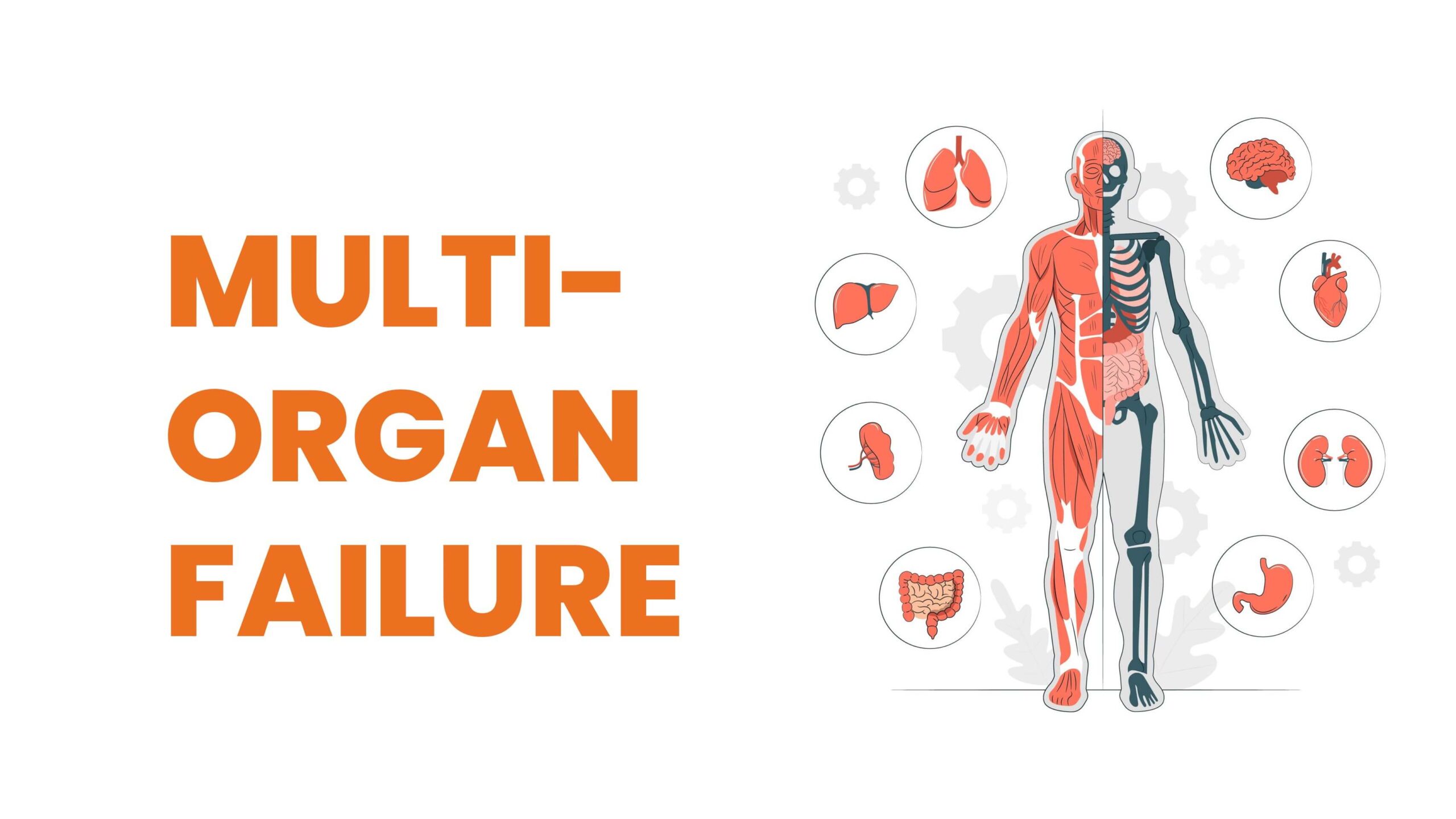
What is Multi-organ Failure?
Multiorgan Dysfunction Syndrome (MODS) is a serious condition where two or more of the body’s vital organs, such as the brain, heart, lungs, kidneys, liver, gut, and blood begin to fail.
When does multiorgan failure occur?
MODS can develop as a complication of various severe illnesses or injuries that leads to release of toxins and cytokines (reactive particles) including:
Polytrauma: Severe injuries affecting multiple body parts.
Severe infections: Such as dengue, malaria, or infections affecting the blood, urine, or lungs.
Severe hypotension: A dangerously low blood pressure, often caused by a major heart attack.
Severe dehydration and bleeding: Significant fluid and blood loss, commonly occurring after major surgery.
What do we (the ICU team) do for multiorgan failure?
Treatment for multiorgan failure focuses on stabilizing the patient and addressing the underlying cause. Key interventions include:
Treatment of the primary disease or injury: Addressing the root cause of the MODS is essential.
Fluid resuscitation: Administering fluids orally or through intravenous injections to maintain adequate blood volume.
Blood transfusion: Replacing lost blood components to support oxygen delivery.
Blood pressure support: Using medications to maintain blood pressure at a healthy level.
Role of ICU in multiorgan failure
Intensive Care Units (ICUs) are equipped to manage the complexities of multiorgan failure. Patients with MODS require constant monitoring and life-support measures. ICU teams employ advanced techniques and technologies to:
Stabilize vital functions: Maintaining blood pressure, oxygen levels, and heart rate.
Support failing organs: Using dialysis for kidney failure, ventilators for lung failure, etc.
Treat underlying causes: Addressing the root cause of the illness or injury.
Prevent complications: Minimizing the risk of infections and other secondary problems.
What can you do? Early recognition matters.
Early recognition and intervention are crucial in managing multiorgan failure. If you or someone you know experiences the following symptoms, seek immediate medical attention:
Low blood pressure (dizziness)
Decreased urine output
Altered mental status (confusion, lethargy)
Shortness of breath with or without low oxygen levels
Looking for a specialist for multiorgan failure treatment in Ahmedabad?
We specialize in critical care medicine and are dedicated to providing advanced treatment for patients with multiorgan failure.
Banner Source: www.freepik.com
Disclaimer: This information is intended for general knowledge and informational purposes only, and does not constitute medical advice. Always consult with a qualified healthcare professional for diagnosis and treatment.
Disclaimer: This information is intended for general knowledge and informational purposes only, and does not constitute medical advice. Always consult with a qualified healthcare professional for diagnosis and treatment.


